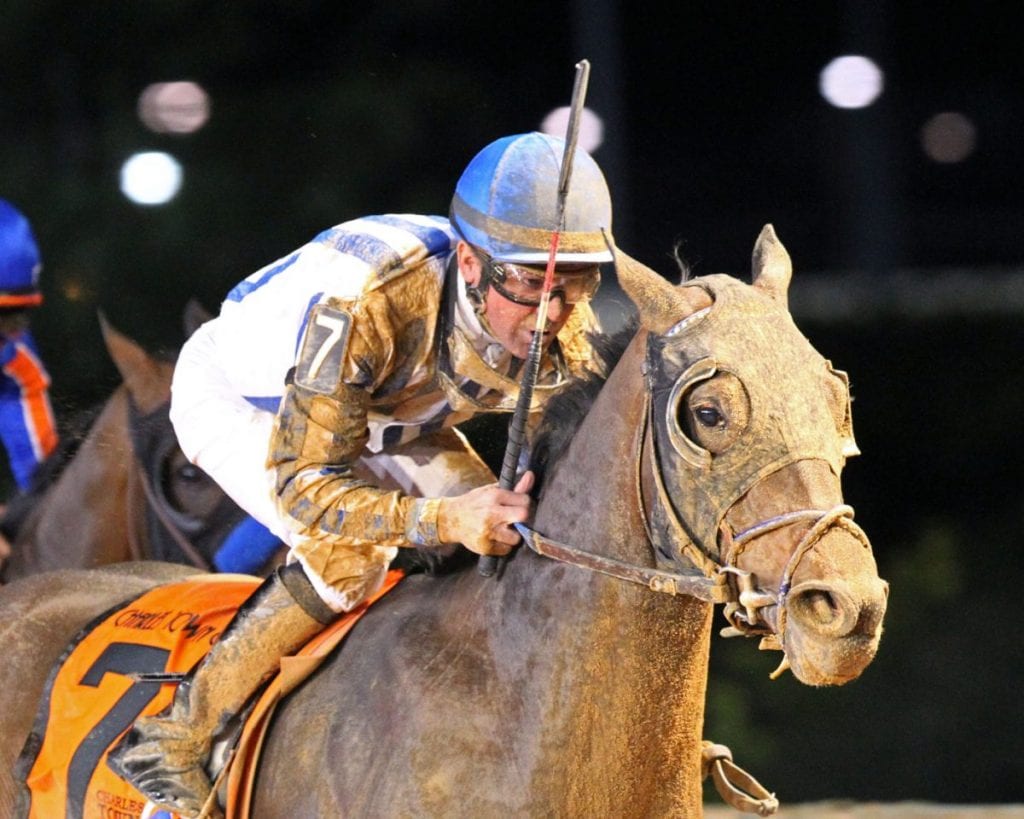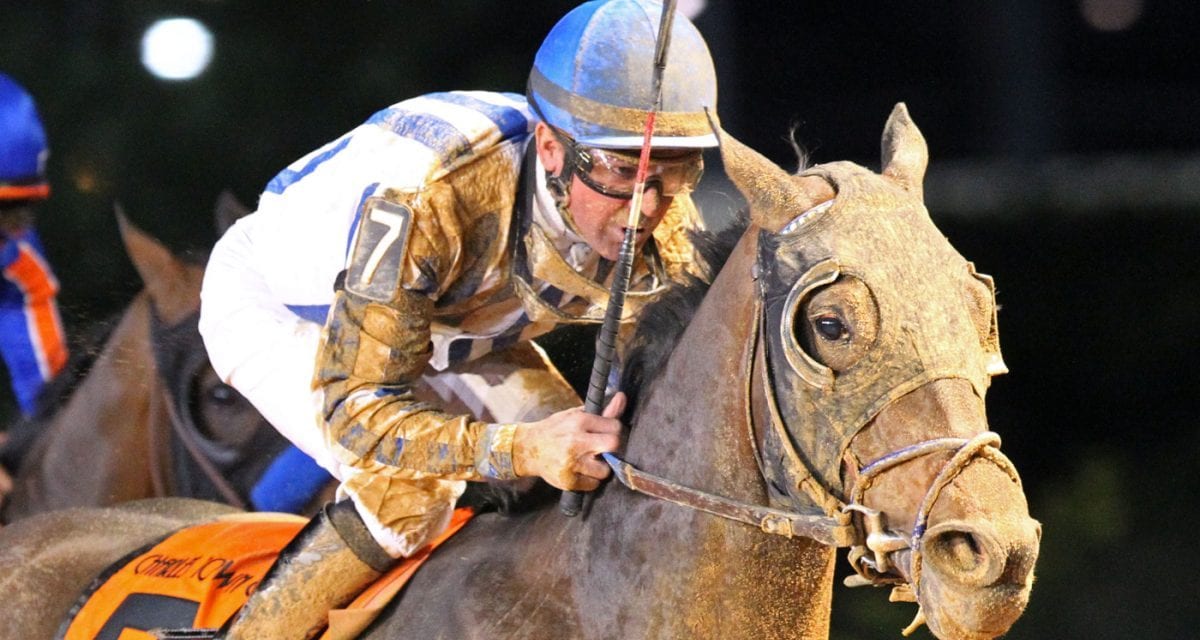
Racing at Charles Town has benefited enormously from gaming revenues over the years — and now is fighting to retain them. Photo of Imperative in the 2014 Charles Town Classic by Coady Photography.
by Frank Vespe
Legislation that would have eviscerated West Virginia’s Thoroughbred industry appears to be “mostly dead,” sources said.
A pair of bills — Senate Bills 543 and 563 — would have represented “the beginning of the end” for the state’s Thoroughbred racing and breeding industry, said Joe Funkhouser of West Virginia Racing United, a coalition comprised of the horsemen’s groups at Hollywood Casino at Charles Town Races and Mountaineer Park, the local Jockeys’ Guild affiliates, and the West Virginia Thoroughbred Breeders Association. Funkhouser’s family owns O’Sullivan Farms in Charles Town, one of the state’s leading breeding farms.
Neither bill, however, passed in the house in which it originated. As a result, it would require a suspension of the rules via a supermajority vote for either one to be taken up at this point — an unlikely prospect.
SB 563 would have eliminated the requirement that casinos have an agreement with local horsemen’s and other groups to conduct live racing — essentially “decoupling” horse racing and casino gambling, horsemen’s advocates said.
And SB 543 would have required that purse and breed development funds generated by slot machines and table games be subject to the annual appropriations process, rather than automatically credited to the accounts based on an agreed-upon formula.
Legislation to eliminate greyhound racing in West Virginia — also a recipient of gaming revenues — apparently is also dead.
Similar decoupling legislation, also targeting dog racing, has already passed in Iowa, leading to the expected demise of that state’s greyhound tracks after this year.
“There would be no requirement for live racing at these casinos” if the legislation were to pass, Funkhouser said. “It would subvert the purposes of the referendums” that allowed the casinos in the first place.
The legislation which allowed for casino gambling at racetracks called racing “a valuable tourism resource” that provided “significant economic benefits” to the state and thus allowed for the introduction of slot machines to ensure “the survival of West Virginia’s pari-mutuel racing industry.”
“To go back on that now,” Funkhouser said, “would be a bait-and-switch.”
SB 563 would also have eliminated the right of localities to “recall” — or overturn — their decisions to allow gaming. Under current legislation, they are permitted to do so once five years have elapsed from the adoption of gaming.
The net effect: to eliminate the nexus between racing and casino gambling and to prevent communities from changing their minds about whether to allow gaming, even in the face of changing conditions.
Many horsemen believe that casino operators favor such decoupling legislation, and Funkhouser said that a state senator had told him that Penn National Gaming Inc. (PNGI), the company which owns Hollywood Casino at Charles Town Races, was pushing the decoupling legislation.
Not so, said PNGI’s Vice President – Racing Chris McErlean.
“We’ve kind of been taking a wait-and-see approach,” McErlean said. “It’s not something we’re encouraging. We take no position on decoupling.”
According to a West Virginia University study, casino revenue accounts for approximately 88 percent of the money going to breeders and owners. Yet those revenues have dropped more than 20 percent from their peak. Meanwhile, though in the original legislation, the industry was slated to receive 15.5 percent of gross terminal income from slots (14 percent for purses and 1.5 percent for the development fund), a series of legislative changes have driven that down considerably. In fiscal 2013, the industry’s share was less than 10 percent.
With such high stakes, it’s no surprise that the state’s breeders and horsemen have taken this year’s legislative session very seriously.
“Charles Town Casino without racing,” said Ken Lowe, a breeder and horseman who at one time was president of the Charles Town Horsemen’s Benevolent and Protective Association, “becomes Atlantic City.”
* In other legislative news, a bill allowing Mountaineer Park to conduct fewer thatn its previously mandated 210 days of live racing appears likely to sail through both houses. The bill also would give the state’s Racing Commission greater flexibility in determining whether to allow tracks to reduce the number of live days they offer.











